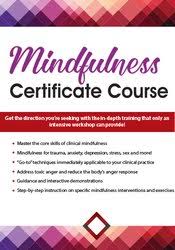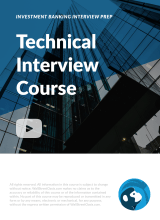Available for Pre-Order. This product will be available within a few days.
Terry Fralich – Mindfulness Certificate Course, 2-Day Intensive Training
Get the direction you’re seeking with the in-depth training that only an intensive multi-day recording can provide!
Master the core skills of clinical mindfulness
Mindfulness for trauma, anxiety, depression, stress, sex and more!
“Go-to” techniques immediately applicable to your clinical practice
Address toxic anger and reduce the body’s anger response
Guidance and interactive demonstrations
Step-by-step instruction on specific mindfulness interventions and exercises
This recording is an in-depth Mindfulness Certificate Course to develop a comprehensive, step-by-step approach to help your clients incorporate mindfulness practices into their daily routine.
Learn to utilize concrete strategies that will help you provide greater healing for your clients who suffer from:
Trauma
Anxiety disorders
Depression
Relationship challenges
Toxic habits or beliefs
You will learn effective clinical techniques from Terry Fralich, LCPC, who has utilized mindfulness in his clinical practice for over two decades and trained mental health professionals on mindfulness both nationally and internationally. From his experience with the Dali Lama and Jon Kabat-Zinn he will teach you how to master the art of applying mindfulness insights, skills and techniques to a variety of clinical populations. Watch him for this transformational experience as he reveals the latest advances in mindfulness and neuroscience to get you the skills you need to succeed!
Full of structured and experiential exercises, interactive discussions, and case studies, you will take away practical mindfulness strategies you can immediately integrate into your practice. And the included reproducible handouts are instantly usable upon your return to the office.
Leave this certificate course armed with tools you can use in your very next session.
Describe how clear psychoeducational descriptions of the relationship between mindfulness, neurobiology, and common disorders can be used to motivate clients to engage in treatment.
Communicate how a case conceptualization that draws upon neuropsychological principles can help clinicians establish realistic expectations and goals with clients.
Formulate treatment plans for anxiety that incorporate mindfulness strategies clients can use in and out of session to help alleviate symptoms.
Dissect the neurobiological underpinnings of how emotions are created, and communicate why this is important to the therapeutic process.
Employ mindfulness training and diaphragmatic breathing techniques that clients can use to help them manage unhealthy anger responses.
Construct treatment plans for depression that incorporate mindfulness interventions that can be used to interrupt rumination and automatic negative thoughts.
Characterize how mindfulness-based stress reduction techniques can be used with clients to address prolonged periods of stress that can impact mental and physical health.
Consider the clinical impact of research regarding the effects of mindfulness-based practices on the neuropsychological aspects of trauma.
Explore the clinical implications of research regarding the association between mindfulness and relationship satisfaction and outcomes.
Establish how barriers to implementing mindfulness can be overcome using informal techniques clients can incorporate into their daily lives.
Characterize how clinical tools that increase self-awareness can be used in therapy to help clients better manage their thoughts, emotions and behaviors.
Articulate the importance of the connection between therapist and client in contributing to positive clinical outcomes, and delineate how mindfulness may enhance the therapeutic relationship.
Would you like to receiveTerry Fralich – Mindfulness Certificate Course, 2-Day Intensive Training ?
MASTER THE CORE SKILLS OF MINDFULNESS
Treatment Concepts
Introduction of mindfulness to clients
Mindfulness as self-directed neuroplasticity
Mindfulness as a skill-based path
Reconsolidation of neural networks through mindfulness practice
Experiential exercise: self-regulation techniques
Strengthening Therapeutic Presence
Benefits of therapeutic presence: presence, attunement, resonance, trust
Stabilize the mind: the foundation of focus
Self-regulation: the foundation of settledness
Spaciousness: the foundation of openness
Five Core Skills of Mindfulness
Clarify, set and re-affirm intention
Cultivate witnessing awareness: metacognition
Stabilize attention
Strengthen self-regulation
Practice loving-kindness for self and others
Experiential exercise: stability of attention and awareness
Neuroscience and Mindfulness
Effective drivers of neuroplasticity
Interpersonal neurobiology: importance of early experiences
Formation of mental models: core negative beliefs
Neuroception and the operation of the brain’s survival mechanisms
Explicit and implicit memories
Adaptive safety strategies: negative side effects
Experiential exercise: cultivate an inner refuge
Mindfulness Practices that Change the Brain
Themes in beginning mindfulness practice
Am I focused or distracted?
Am I settled/grounded or tight/churning?
Mindful transitions: a practice for new clients
Stop-breathe-reflect-choose practice
Development of client self-talk, scripts and mantras
Positive visualization practice
Cultivate a new vision of self: transform core negative beliefs
TRAUMA, ANXIETY, DEPRESSION, RELATIONSHIPS, ANGER, STRESS AND SEX
Mindfulness for Trauma
Cultivate safety and groundedness
Retrain the dysregulated nervous system
Experiential exercise: positive visualization
Mindfulness for Anxiety
Witness the anxious mind
Get unstuck from anxious rumination
Experiential exercise: self-regulation practices for anxiety
Mindfulness for Depression
Transform core negative beliefs that power depression
Cultivate motivation and action
Experiential exercise: develop behavioral plans with the client
Mindfulness for Relationships
Clarify intentions that work in relationships
Transform unhealthy patterns
Experiential exercise: cultivate positive experiences/ exchanges
Mindfulness for Anger
Understand the source of anger energy
Identify the anger storm
Clarify the practice when anger arises
Experiential exercise: rehearsal of the Stop-Breathe-Reflect-Choose practice
Mindfulness for Stress
Educate the client about the impact of stress
Change the stress reaction through practice
Experiential exercise: strengthen awareness of stress response, shifting to relaxation response
Mindfulness for Sex
Create conditions for healthy and mutually satisfying sex
Open to the full power of sexual intimacy
Research, Limitations and the Potential Risks of Mindfulness in Treatment
Current state of research on mindfulness
Limits of the current research
Mindfulness-based treatments – potential risks and limitations
The importance of client evaluation
Practices beyond your training and experience








